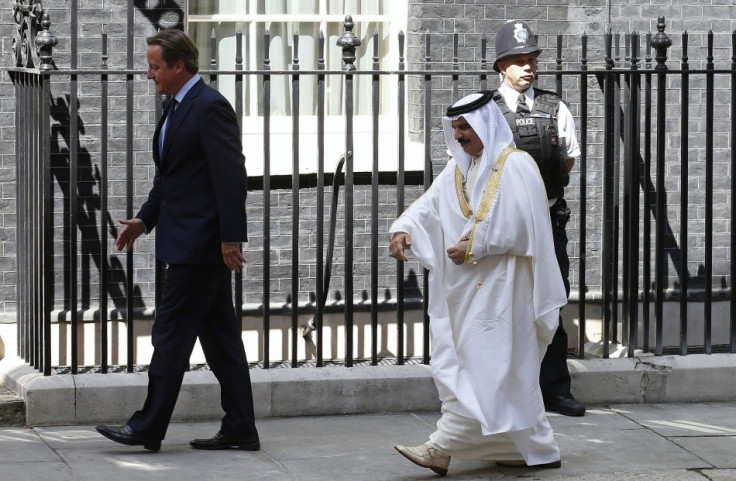Commons Inquiry into Saudi Arabia and Bahrain 'Jeopardised by Secret Meeting with BAE Systems'

Human rights groups have lashed out at a Commons inquiry into Britain's relationship with Saudi Arabia and Bahrain after MPs gathered secret evidence from BAE Systems.
The pressure group Campaign Against the Arms Trade (CAAT) wrote to Conservative MP Richard Ottaway, chairman of the Foreign Affairs Select Committee, condemning the decision to meet representatives of the British-based multinational defence company behind closed doors.
The committee met Sir Sherard Cowper-Coles, former ambassador to Saudi Arabia and international business development director to BAE, and the company's head of government relations, Bob Keen, in March. Specific details about the meeting have not been disclosed.
Amnesty International also shared concerns over the secrecy of the meeting. Its UK arms programme director, Oliver Sprague, told The Times: "BAE Systems has form when it comes to secretive arms deals with Saudi Arabia.
"It's worrying that once again it seems to have been able to get away with a behind-closed-doors and undocumented meeting."
In his letter to CAAT, seen by IBTimes UK, Ottaway said: "The committee invited Sir Sherard to give evidence in public, but neither Sir Sherard nor any other representative from BAE was willing to provide oral evidence. Though frustrating, the committee judged that it was better to hear from Sir Sherard informally than not at all and we therefore agreed to hold an informal meeting on 19 March."
He said that no transcripts or official minutes were made though a committee member took notes.
A spokesperson for BAE Systems told IBTimes UK: "We agreed with the committee to give evidence informally, in order to be as helpful as possible, without compromising diplomatic and commercial sensitivities.
"The discussion drew on Sir Sherard's wide experience of Saudi matters, and his knowledge of the region, and also touched on BAE Systems' position in the kingdom."
CAAT also complained over the committee's choice of adviser, Sir William Patey, an Arabist who was ambassador to Saudi Arabia from 2007-10. His appointment raised fears of bias, according to Ann Feltham, CAAT's parliamentary coordinator.
"As a recent former ambassador, Sir William has been closely involved in implementing the current policy with regards to Saudi Arabia, policy that has remained the same for decades," reads a letter to Ottaway seen by IBTimes UK. "In consequence, he could not be expected to approach the inquiry in a disinterested and questioning manner.
"His appointment raises major questions over the impartiality of the inquiry and its openness to new approaches with regards to the UK's relations with the two countries."
The MP replied saying that the committee was free to accept or reject Patey's advice.
But CAAT said: "This indeed may be the case but public perception is important and Sir William is seen as someone very much involved with the established UK-Saudi Arabia policy and relationship."
CAAT said it welcomed the enquiry when it was announced in September 2012 (as exclusively disclosed by IBTimes UK), but "has been concerned about some aspects of its work".
"This includes, the appointment of Patey as adviser, the secret evidence of BAE, and the delayed publication of many of the evidence statements, including those of CAAT and other critical voices. [The first set of statements was published in early January 2013, the second was delayed till the end of July)]," Kaye Stearman, media co-ordinator for CAAT, said.
Bahrain is in talks with Saudi officials over a £1bn deal for a delivery of BAE-made Eurofighter Typhoons.
© Copyright IBTimes 2024. All rights reserved.























